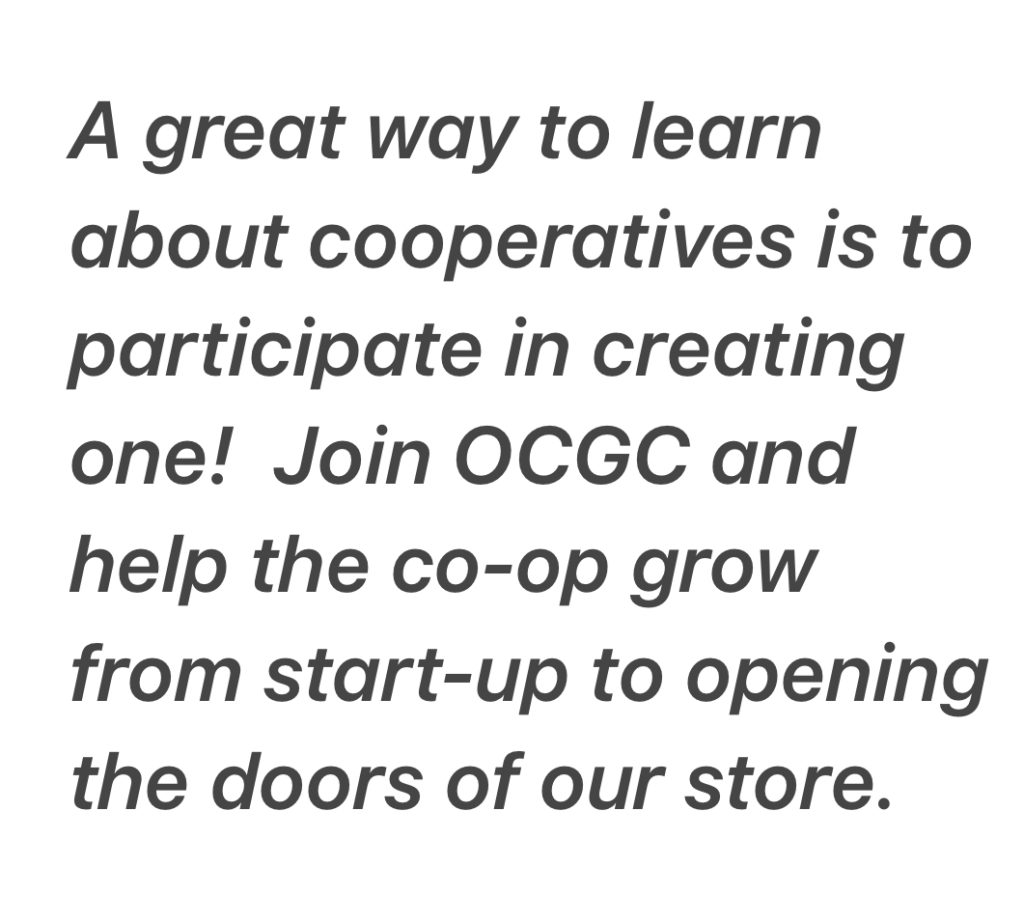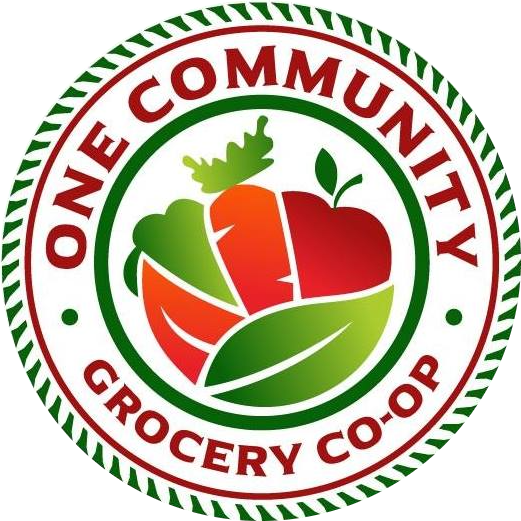
Cooperatives are businesses which are owned and managed by their member-owners. They operate in a democratic manner, under an agreed set of values and principles. Member-owner shares start building the financial base for the business.
An organizing group of a handful of people usually starts the process. As the membership base grows, by-laws are developed, a business plan comes together, incorporation occurs, and member-owners vote on the co-op board that will guide the process through opening the doors of the business.
There are cooperative businesses all over the world. Not all cooperatives are grocery stores. There are co-ops in many fields including agriculture, housing, education, healthcare, consulting, financial (credit unions), insurance, tech platforms, and utilities. They all share the cooperative business model of being democratically controlled by their members, adhering to their common values – self-help, self-reliability, democracy, equality, equity, and solidarity. All cooperatives follow the Seven Cooperative Principles established through the International Cooperative Alliance (ICA).
The Seven Cooperative Principles
- Voluntary and Open Membership
- Democratic Member Control
- Member Economic Participation
- Autonomy and Independence
- Education, Training, and Information
- Cooperation Among Cooperatives
- Concern for Community
The ICA defines cooperatives as follows:
“Cooperatives are people-centered enterprises owned, controlled, and run by and for their members to realize their common economic, social, and cultural needs and aspirations.
“Cooperatives bring people together in a demographic and equal way. Whether the members are the customers, employees, users, or residents, cooperatives are democratically managed by the ‘one member, one vote’ rule. Members have equal voting rights, regardless of the amount of capital they put into the enterprise.”
Excerpt from the website of the International Cooperative Alliance: What is a Cooperative? Read the full text here.
Co-op Models
There are several different models of co-op ownership and control, but they all include the one owner equals one vote rule. A few of these co-op models include:
- Member-owner co-ops, with one vote per member-owner. Each member-owner pays a membership fee, and has one share or one vote in ownership.
- Employee-owned co-ops, where each employee earns or purchases a share in ownership., one an equal and democratic basis.
- Hybrid co-ops, which combine member-owner and employee-owner models.
- Franchise owner models,
While the ownership structure may vary, they still are democratic and community minded, and all follow the Seven Cooperative Principles. The owners pay a membership or ownership fee which acts like a share in the co-op, much like a shareholder stakes in non-cooperative enterprises. The notable difference is that each owner in a co-op has one vote. While they may elect to contribute more equity to to co-op, they still only have one vote. A shareholder in a corporation may own multiple shares in that business, and gain an additional vote for each share owned.
One Community Grocery Co-op’s Model
We are establishing a member-owner model for OCGC, where an individuals purchases an ownership share in the co-op. One share per person with one vote per person. Learn how on the Join OCGC page.
A note on the term “member-owner.” We use this term intentionally, because there are retail establishments that people can join via membership to get discounts, or even to be able to shop at that store. While you can choose to be a member-owner at the co-op and help us grow the store we need in our community, anyone can shop at the store once it is open. No membership required.
We Are in Good Company
There are many support organizations that help groups like OCGC start co-ops. Among them are:
Food Co-op Initiative (FCI) is a non-profit organization that has been helping communities all over the U.S. open their own retail food co-ops.
The Up & Coming Food Co-op Conference, co-sponsored annually by FCI and Indiana Cooperative Development, brings together startup co-op teams from all over the country for workshops, material-sharing, and conversations on what is working in their communities.
The National Cooperative Business Association/CLUSA (CBA/CLUSA) represents all types of co-ops in the US- our retail food co-ops are among them.
The International Cooperative Alliance (ICA) has laid the groundwork for cooperatives all over the world. It was founded in 1895 and includes co-op members in 112 countries. The ICA has brought cooperators together from all over the world, and helped to define and standardize the basic constructs of co-op business models. This has helped make it easier for people to help develop laws to help incorporate co-ops in many countries. Learn more about their global advocacy and research on their website. ICA also manages the .coop domain available only to cooperative businesses.
There are also several cooperative consulting organizations around the country. Many states or large municipalities have support programs for new co-ops.

